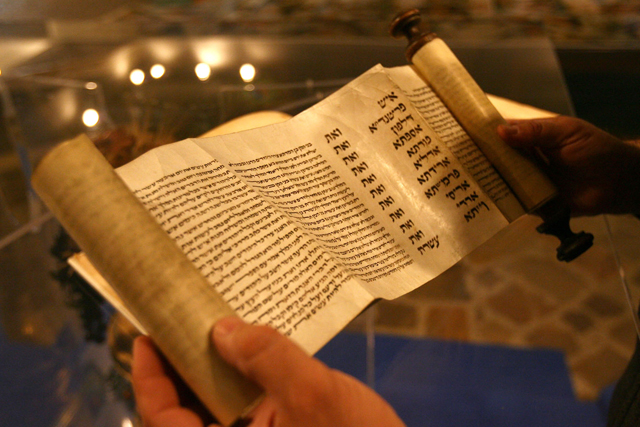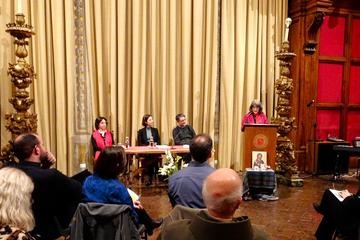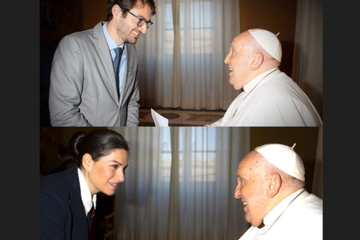
By Elena Dini
ROME — Since 1990, Jan. 17 is recognized in Italy as the Day for Jewish-Christian Dialogue. This date was chosen because it precedes the start of the Week of Prayer for Christian Unity, and encourages reflection on the close relationship between Judaism and Christianity, before prayer for Christian Unity begins.
The first ever Day for Jewish-Christian Dialogue proposed as a topic, “The Jewish root of the Christian faith and the necessity of dialogue.” Its aim was to “deepen Jewish-Christian religious dialogue through an increased mutual knowledge; the overcoming of prejudice, the rediscovery of common biblical values, common initiatives for justice, peace and the safeguard of creation,” as expressed in the letter by Msgr. Ablondi, then-secretary of the Office for Ecumenism and Dialogue of the Italian Bishops’ Conference.
In a booklet produced for this year’s Day for Jewish-Christian Dialogue, Msgr. Ambrogio Spreafico, president of the Commission for Ecumenism and Dialogue of the Italian Bishops’ Conference, wrote: “In these meetings, we tried to find a field of collaboration that could foster knowledge of Judaism as a living reality and not only as a memory of past events from the Catholic side.”
This year, participants were invited to ponder together on the Book of Esther. In the booklet, the chief rabbi of the Jewish community in Rome, Rabbi Riccardo Di Segni, wrote that the story told in the scroll of Esther inspired the Jewish festival of Purim. This book in the Bible tells about a threat of total destruction of the people of Israel at the hands of the prime minister of the Persian Empire, Haman. Esther and her uncle Mordecai discover his plot and manage to change the outcome leading to the failure of their persecutors.
This scroll is full of “hidden meanings,” said Rabbi Di Segni, “starting from the names of the protagonists.” Both Esther and Mordecai are not typical Jewish names and show an “integration and assimilation of the Persian Jews into the local culture to the point of assuming the names of their gods,” he said.
Father Dionisio Candido, who heads the biblical apostolate of the National Catechetical Office of the Italian Bishops’ Conference, contributes his reflections to the booklet, as well.
“The Book of Esther suggests not to settle for the superficial approach to events but to learn to go beyond it until the loving creativity of the provident God is visible,” he wrote.
*The Day for Jewish-Christian Dialogue was celebrated in Rome with a conference at the Lateran University Jan. 17. More details here


